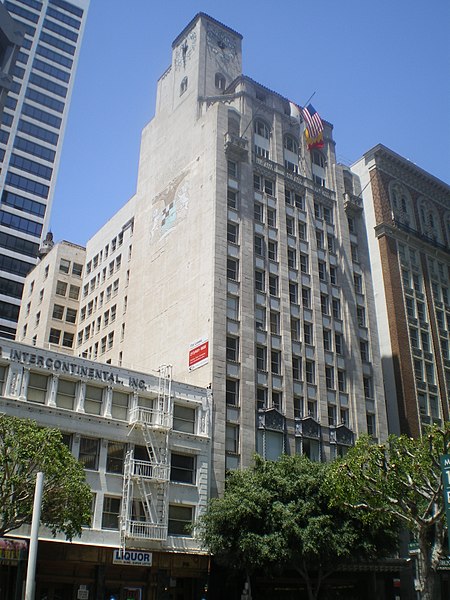James Oviatt Building
1927 establishments in CaliforniaArt Deco architecture in CaliforniaBuildings and structures in Downtown Los AngelesCommercial buildings completed in 1928Commercial buildings on the National Register of Historic Places in Los Angeles ... and 3 more
Los Angeles Historic-Cultural MonumentsOffice buildings completed in 1927Skyscraper office buildings in Los Angeles

The James Oviatt Building, commonly referred to as The Oviatt Building, is an Art Deco highrise in Downtown Los Angeles located at 617 S. Olive Street, half a block south of 6th St. and Pershing Square. In 1983, the Oviatt Building was listed in the National Register of Historic Places. It is also designated as a Los Angeles Historic-Cultural Monument.
Excerpt from the Wikipedia article James Oviatt Building (License: CC BY-SA 3.0, Authors, Images).James Oviatt Building
West 6th Street, Los Angeles Downtown
Geographical coordinates (GPS) Address Nearby Places Show on map
Geographical coordinates (GPS)
| Latitude | Longitude |
|---|---|
| N 34.0475 ° | E -118.25388888889 ° |
Address
Park Central Building
West 6th Street
90071 Los Angeles, Downtown
California, United States
Open on Google Maps







